Many thanks to our Patrons who cover ~2/3 of our hosting bill. Please join them if you can.
1905
Jump to navigation
Jump to search
1895 < 1896 < 1897 < 1898 < 1899 < 1900 < 1901 <1902 < 1903 < 1904 < 1905 > 1906 > 1907 > 1908 > 1909 > 1910 > 1911 > 1912 > 1913 > 1914 > 1915
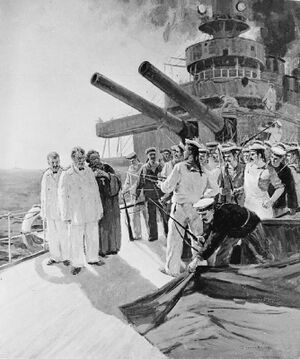 The Russian Revolution of 1905. Artistic impression of the mutiny by the crew of the battleship Potemkin against the ship's officers on 14 June. |
Russian revolution
The Russian Revolution of 1905 was a wave of mass political and social unrest that spread through the Russian Empire.
Events
- January 1 – The Trans-Siberian Railway officially opens, after its completion on July 21, 1904.
- March 3 – Tsar Nicholas II of Russia agrees to create an elected assembly (the Duma).
- March 4 – Second inauguration of Theodore Roosevelt: Theodore Roosevelt is sworn in for a full term as 26th President of the United States.
- March 13 – Mata Hari introduces her exotic dance act in Paris.
- March 23 – Theriso revolt: About 1,500 men, led by Eleftherios Venizelos, meet at the village of Theriso in Crete to challenge the island's authoritarian government and press for its unification with Greece.
- March 31 – Wilhelm II, German Emperor asserts German equality with France in Morocco, triggering the Tangier or First Moroccan Crisis.
- April 30 – Albert Einstein completes his doctoral dissertation, A New Determination of Molecular Dimensions (submitted July 30 to the University of Zurich).
- June 7 – The Norwegian Parliament declares dissolution of the union between Norway and Sweden, giving Norway full independence.
- June 27 – (June 14 O.S.): Mutiny breaks out on the Russian ironclad Potemkin.
- July 22 – Taft–Katsura Secret Agreement: The United States and Japan meet to discuss their respective positions regarding Korea and the Philippines.
- Aug 20 – Sun Yat-sen, Chinese revolutionary, forms the first chapter of T'ung Meng Hui, a union of all secret societies determined to bringing down the Manchu dynasty.
- September 1 – The Canadian provinces of Alberta and Saskatchewan are established, from the southwestern part of the Northwest Territories.
- September 5 – Russo-Japanese War: Treaty of Portsmouth – In New Hampshire, a treaty mediated by U.S. President Theodore Roosevelt is signed by Japan and Russia. Russia cedes the island of Sakhalin together with port and rail rights in Manchuria to Japan.
- October 16 – The Partition of Bengal is made by Lord Curzon to separate the region of Bengal into Muslim and Hindu territories until its reunification in 1911.
- October 26 – Sweden agrees to the repeal of the union with Norway.
- October 16 – The Circum-Baikal Railway is brought into permanent operation, completing through rail communication on the Trans-Siberian Railway.
- October 30– (October 17 Old Style) – October Manifesto: Tsar Nicholas II of Russia is forced to announce the granting of his country's first constitution (the Russian Constitution of 1906), conceding a national assembly (State Duma) with limited powers.
- November 12 – Norway holds a referendum, resulting in popular approval of the Storting's decision to authorise the government to make the offer of the throne of the newly independent country.
- November 17 – The Japan–Korea Treaty of 1905 ("Eulsa Treaty") effectively makes Korea a protectorate of Japan.
- November 18 – Prince Carl of Denmark becomes King Haakon VII of Norway.
- November 28 – Irish nationalist Arthur Griffith founds Sinn Féin in Dublin, as a political party whose goal is independence for all of Ireland.
- November–December – Russian Revolution of 1905: In the Baltic governorates, workers and peasants burn and loot hundreds of Baltic German manors. The Imperial Russian Army thereafter executes and deports thousands of looters.
- December 2 – Norsk Hydro, predecessor of Equinor, a state-run energy product and grid brand in Scandinavia, founded in Norway.
- December 7–18 – Moscow Uprising: A Bolshevik-led revolt is suppressed by the army.
- December 9 – The 1905 French law on the Separation of the Churches and the State is passed, enacting laïcité.
- December 30 – A bomb kills Frank Steunenberg, ex-governor of Idaho; the case leads to a trial against leaders of the Western Federation of Miners.
Date unknown
- Alfred Einhorn introduces novocaine.
- Wolves become extinct in Japan.
- Civil service examinations are abolished in Qing dynasty China.
- Ta-Ching Government Bank, predecessor of Bank of China, is founded in Peiping.[citation needed]
- Max Weber publishes The Protestant Ethic and the Spirit of Capitalism (Die Protestantische Ethik und der Geist des Kapitalismus).
Events
| Event | Start | End | Description |
|---|---|---|---|
| Pax Brittanica | 1815 | 1915 | |
| Dreyfus Affair | November 1894 | 1906 | Political scandal that polarised France 1894-1906 |
New Groups
| Group | Image | Type | Description |
|---|---|---|---|
| Missouri State University | 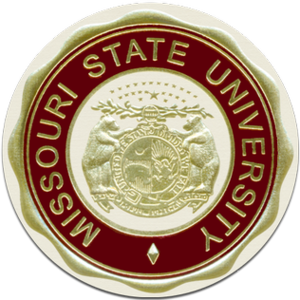 | Public State university | Midwestern University |
| Union Graduate School |  | College in New York State, merged with Clarkson University in 2016. | |
| Seven Society |  | The most secretive of the University of Virginia's secret societies | |
| Australian Bureau of Statistics | 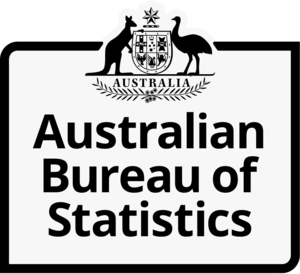 | Statistical bureau which apparently is incapable of calculating excess deaths after the Covid jabs. | |
| League for Industrial Democracy |  | The focus began to shift in the 1950s when it became involved in the CIA's anticommunist efforts. | |
| Yara International | 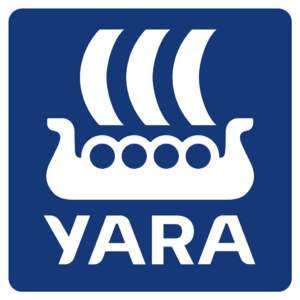 | Chemical company that is one of the world’s largest producers of synthetic fertilisers | |
| Juilliard School |  | Prestigious dance, drama, and music school | |
| University of Sheffield | 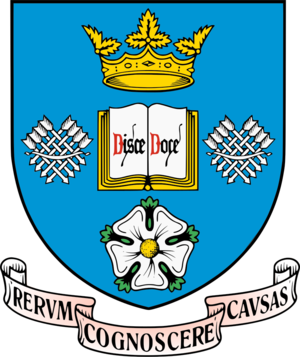 | Research Public | University in Sheffield, England. |
| Fudan University | 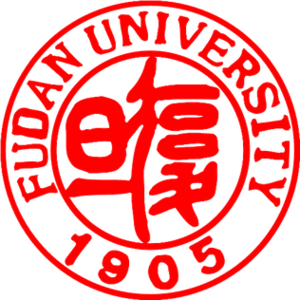 | Public | One of the most prestigious and selective universities in China |
| University of California/Davis | 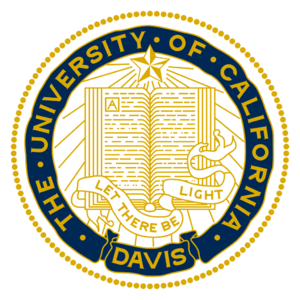 | Public research university Space-grant Land-grant | The northernmost of the ten campuses of the University of California system. |
| Norway/Ministry/Foreign Affairs |  | A significant donor to NGOs and planning organizations. Many of the recipients dovetail with NATO objectives like regime changes and controlling the narrative. | |
| Norsk Hydro |  | Norwegian company with heavy Bilderberg habit. One of the largest aluminium companies worldwide. Formerly also world big in fertilizers and heavy water, used to make nuclear weapons. |
Births
| Title | Born | Place of birth | Died | Summary | Description |
|---|---|---|---|---|---|
| Harry Sporborg | 1905 | 1985 | Spook Lawyer Financier Deep politician | Spook alleged to have envisaged Operation Gladio. | |
| Gerry Droller | 1905 | Germany | 1992 | Spook | |
| William Gossett | 1905 | US Texas Gainesville | 20 July 1998 | Lawyer | Ford Motor Company executive appointed Deputy Special Representative for Trade Negotiations by JFK (on the advice of Robert S. McNamara) |
| Philip Mosely | 1905 | 13 January 1972 | Spook Academic Deep state functionary | Spooky academic | |
| John Corson | 1905 | Washington DC | 2 September 1990 | Academic Bureaucracy | Part of the US governing set, in and out of government,academia and private business. |
| John Beevor | 1905 | 1987 | Spook | British SOE spook who prepared a stay behind network in Portugal during WW2. Father of British historian Anthony Beevor. | |
| Carmine Bellino | 1905 | US New Jersey | February 1990 | Spook | Spooky FBI officer |
| Hans Koch | 1905 | 1987 | Danish Bilderberg bureaucrat. President of Executive Board of the Danish Atomic Energy Commission | ||
| Sven Dahlman | 2 January 1905 | Sweden Härnösand | 6 May 2000 | Diplomat Journalist | Swedish diplomat and journalist |
| Herbert Bowden | 20 January 1905 | Wales Cardiff UK | 30 April 1994 | Lord President of the Council and Leader of the House of Commons 1964-1966 | |
| Henry Thynne | 26 January 1905 | 30 June 1992 | British aristocrat | British aristocrat, landowner, and Conservative Party politician. Amassed what would become the largest collection of paintings by Adolf Hitler, | |
| Alfred Schaefer | 30 January 1905 | 8 September 1986 | Financier | Attended the 1970 Bilderberg as president of the supervisory board of UBS. | |
| Oliver Franks | 16 February 1905 | Birmingham Selly Oak | 15 October 1992 | Diplomat Civil servant Deep state actor | Bilderberg UK Ambassador to the US, 'One of the founders of the postwar world'. |
| Urs Schwarz | 25 February 1905 | 12 October 1996 | Editor | Attended 2 Bilderbergs in the 1960s as ex International Press Institute/President | |
| Raymond Aron | 14 March 1905 | France Paris | 17 October 1983 | Journalist Philosopher Sociologist | French sociologist who attended 3 Bilderbergs from 1957 to 1966 |
| Carl Curtis | 15 March 1905 | Nebraska Minden | 24 January 2000 | ||
| Alfred Mozer | 15 March 1905 | 12 August 1979 | Politician | Attended the 1963 and 1964 Bilderbergs | |
| Albert Speer | 19 March 1905 | Germany Mannheim Baden | 1 September 1981 | Author Government official Architect | German Minister of Armaments and War Production in WW2 |
| Gaston Eyskens | 1 April 1905 | Belgium Lier | 3 January 1988 | Politician | 3 term Prime Minister of Belgium |
| Johnny Roselli | April 1905 | Italy Lazio Esperia | 7 August 1976 | Crime boss JFK/Assassination/Premature death HSCA/Premature deaths | Mobster for the Chicago Outfit. Died just before the HSCA. |
| George Moore | 1 April 1905 | 21 April 2000 | Banker | Led an early effort by multinational corporations to open Latin America to them. | |
| J. William Fulbright | 9 April 1905 | US Missouri Sumner | 9 February 1995 | Politician | The longest serving chairman in the history of the Senate Foreign Relations Committee. |
| Herman van Roijen | 10 April 1905 | Turkey Istanbul | 16 March 1991 | Diplomat Politician | Dutch diplomat and politician member of the Dutch Round Table |
| Louis Camu | 11 April 1905 | Alost | 12 November 1976 | Banker | Belgian atlanticist banker and multi-Bilderberger. Proponent of European unification and creating a single European currency. |
| Warren Magnuson | 12 April 1905 | Minnesota Moorhead | 20 May 1989 | Politician Lawyer | U.S. Representative (1937–1944) and a U.S. Senator (1944–1981) from Washington state. |
| Frits Philips | 16 April 1905 | Netherlands Eindhoven | 5 December 2005 | Businessperson | Dutch Bilderberger businessman. Philips family member and chairman of Philips. Helped finance the anti-communist/socialist Interdoc network and conspired with other businessmen to buy up major newspapers considered to friendly to the left. |
| Harry Pilkington | 29 April 1905 | 23 December 1983 | Businessperson | Attended the first Bilderberg as President of the Federation of British Industries, and two more in the 1950s | |
| Abraham Zapruder | 15 May 1905 | Kovel Russia/Tsarist Russia | 30 August 1970 | Dress manufacturer | Russian American who took cine film of the JFK Assassination, which was sold to Charles Jackson of Time/Life and then never shown for years. |
| Lammot du Pont Copeland | 19 May 1905 | US Delaware Christiana Hundred | 1 July 1983 | Businessperson Du Pont family | Part of the influential DuPont chemical family, activist for population control |
| U. E. Baughman | 21 May 1905 | US | 6 November 1978 | Spook | Chief of the United States Secret Service between 1948 and 1961, denied the existence of organised crime |
| Tom Driberg | 22 May 1905 | 12 August 1976 | Politician | MI5 MP, UK/VIPaedophile victim, possibly also a spy for the USSR | |
| Donald Fleming | 23 May 1905 | Ontario Exeter | 31 December 1986 | Politician Lawyer | Canadian politician. Attended the 1961 Bilderberg meeting before becoming Minister of Justice and Attorney General in 1962. |
| Joseph Harsch | 25 May 1905 | Ohio Toledo | 3 June 1998 | Journalist | As correspondent for each of the three major broadcast US networks he "shaped as much as has any journalist the American public’s understanding of the breathtaking events of the 20th century". 1958 and 1962 Bilderbergs |
| Ernest Cuneo | 27 May 1905 | New Jersey Carlstadt | 1 March 1988 | Spook Lawyer Athlete Deep state operative | Assumed an important UK/USA liaison role during WW2 |
| Harry Houghton | 7 June 1905 | Lincoln UK | 23 May 1985 | Spook | British Naval SNCO and a spy for the Polish People's Republic and the Soviet Union during the Cold War |
| William Raborn | 8 June 1905 | Texas Decatur | 6 March 1990 | Spook Mariner | United States Navy officer who became Director of Central Intelligence . Allegedly incompetent at CIA, not understanding the agency or the intelligence business". |
| Jean-Paul Sartre | 21 June 1905 | France Paris | 15 April 1980 | Philosopher | |
| John Loudon | 27 June 1905 | Netherlands The Hague | 4 February 1996 | Businessperson | Anglo/Dutch CEO of Shell, and close friend with David Rockefeller. Attended the 1962, 1965, 1975 Bilderbergs. |
| Gorden Sunderland Campbell | 5 July 1905 | 19 September 1962 | Spook Soldier | Reportedly had "intimate operational knowledge of the circumstances surrounding the assassination" of John F. Kennedy | |
| Hans-Joachim von Merkatz | 7 July 1905 | 25 February 1982 | Politician Deep state operative | First president of the Vaduz Institute | |
| David Kennedy | 21 July 1905 | 1 May 1996 | Diplomat | Chicago banker, Secretary of the Treasury and NATO ambassador under Nixon, with hints at deep state connections. | |
| Dag Hammarskjöld | 29 July 1905 | Sweden Jönköping | 18 September 1961 | Author Diplomat Economist | The 2nd Secretary-General of the United Nations who died in highly suspicious circumstances while trying to make peace in the Congo. |
| Michael Chomiak | 12 August 1905 | Ukraine Lvov | 1984 | Spook Soldier Editor Farmer | Nazi Editor in Chief turned Canadian farmer |
| Angelo de Mojana di Cologna | 13 August 1905 | Italy Milan Lombardy | 18 January 1988 | Deep state operative | Prince and Grand Master of the Order of Malta 1962-1988 |
| Constantin Stavropoulos | 15 August 1905 | 6 November 1984 | |||
| Cyril Kleinwort | 17 August 1905 | 1980 | UK businessman | ||
| Theodor Benzinger | 23 August 1905 | Germany Stuttgart | 26 October 1999 | Researcher | |
| Heinz Lammerding | 27 August 1905 | 13 January 1971 | War criminal | German war criminal who had a very smooth ride after WW2 ended. | |
| Adolph Bentinck | 3 September 1905 | 7 March 1970 | Diplomat Dutch nobility | Diplomat & liaison of Dutch deep politicians, including Joseph Luns | |
| Eleanor McBean | 12 September 1905 | California | 6 June 1989 | Author Activist "Anti-vaxxer" | |
| ... further results | |||||
Many thanks to our Patrons who cover ~2/3 of our hosting bill. Please join them if you can.